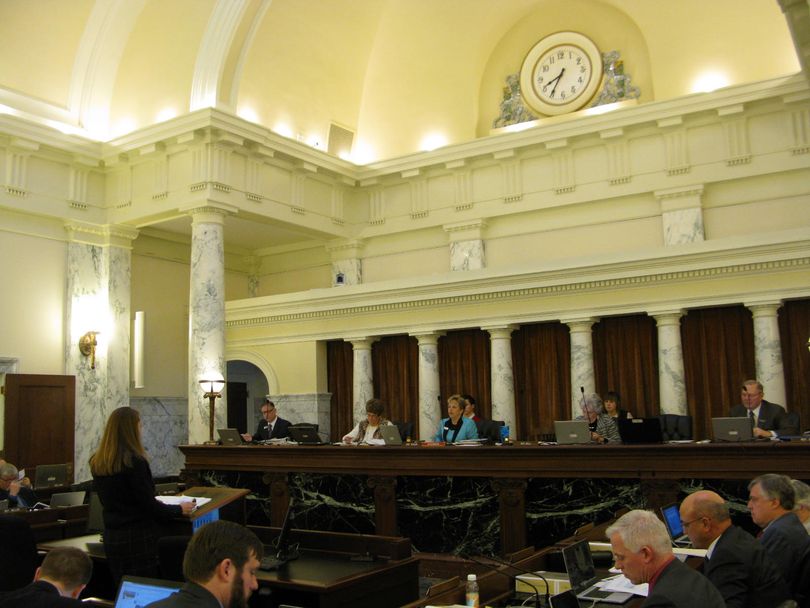Legislative budget writers start examining Otter’s spending plan

The Legislature’s Joint Finance-Appropriations Committee is hearing this morning from Jani Revier, the governor’s budget director, on Gov. Butch Otter’s budget proposal. The room is full – standing room only – but you can watch live here. Otter's $3.3 billion general fund budget proposal would devote 63 percent of spending to education, including both schools and higher ed; 21 percent to health and human services; 10 percent to public safety; 3 percent to general government; and 1 percent each to natural resources and economic development.
Among tidbits that have emerged so far from Revier’s presentation: Part of the reason the governor is proposing increasing funding for the Opportunity Scholarship by $5 million is because of overwhelming demand. The scholarship, which is based on both need and merit, is for students with at least a 3.0 GPA. “But demand is such for the scholarship that no one below 3.75 has received this scholarship,” Revier told lawmakers. “There is an established need for this funding.”
Idaho is facing a significant increase in insurance costs for state employees. Revier said the governor looked for other places to cut to avoid imposing additional costs on workers; the result includes eliminating the “Thrive Idaho” wellness program, which she said wasn’t meeting the governor’s goals.
Sen. Dan Schmidt, D-Moscow, asked about the recommendation for 3 percent merit raises for state employees, noting that the same amount was funded last year, but state workers fell even further behind market rates. “Are we making up the ground or losing it?” he asked. Revier responded, “We didn’t get where we are overnight, and we’re not going to get where we need to be overnight. This is incremental steps for improving compensation for state employees. We will not know what kind of impact it will have until next year, probably, because we’ll have to see what other states and the business world does to see where we compare.”
When Schmidt asked about the significant health insurance cost increases Revier referenced, she said, “Our health plan is a benefit, and as you just noted, we don’t pay very well. One way of reducing costs in our health care plan is to shift” costs onto employees. But, she said, “I think we have to be very careful in looking at our total compensation ... because that is such a large portion of the benefit.” The governor’s budget proposal covers those costs so they’re not shifted onto employees.
Under current law, when the state general fund grows by more than 4 percent over the previous year, an automatic transfer of up to 1 percent is triggered to the Budget Stabilization Fund, the state’s main savings account. Revier said the 4.1 percent growth anticipated in fiscal year 2016, the current year, would trigger a $4.6 million transfer at year-end on July 1, and the 4.9 percent growth anticipated for next year would trigger a $28.9 million transfer to the savings fund. But the governor’s budget proposal reduces state general fund revenue in two significant chunks – $28.7 million for conforming state income tax laws with federal tax law changes, and $21.2 million transferred from the general fund as part of the governor’s proposed new Primary Care Access Program.
“So no transfer is triggered,” Revier said, given those reductions. If either of those didn’t pass, she said, a transfer to the savings fund could be triggered.
Several JFAC members had questions about the PCAP funding mechanism; Revier said she'll schedule a more detailed briefing on that with all those who are interested.
The governor's budget calls for a relatively modest increase in Medicaid, of just 2.3 percent.
